Plenary Talks
Current Challenges in Multichannel Acoustic Signal Processing for Natural Human/Machine Interfaces - Walter Kellermann, University Erlangen-Nuremberg, Germany
Monday, 09 July, 2018, 9:00 - 10:00 (Diamond Lecture Theatre 4)
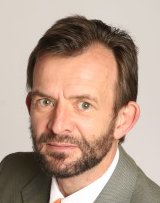
Abstract: In recent years, the tremendous progress in acoustic human/machine interaction manifested itself in products like Amazon Echo and is often only attributed to progress in machine learning algorithms simply exploiting large amounts of data. In parallel, however, also model-based signal processing algorithms developed to previously inconceivable performance and often contribute decisively to the overall success. Especially in multichannel acoustic signal processing, e.g., the linear models for acoustic wavefields provide a reliable basis for numerous efficient techniques exploiting spatial diversity for the fundamental problems at the acoustic human/machine interface: capturing undistorted desired signals and reproducing immersive sound fields. For natural interfaces where the human speaker or listener should not need to touch or wear any gear, this implies as fundamental challenges for multichannel acoustic signal processing: acoustic feedback from loudspeakers to microphones, noise and interfering sources, and reverberation in enclosures. In this talk, we will shortly review the fundamental problems and then highlight some recent advances for massive multichannel reproduction, signal extraction, source localization, and dereverberation, and thereby point to applications in immersive reproduction, hearing aids, smartphones, robot audition, and acoustic sensor networks. Finally, we will also outline promising avenues for future research.
Bio: Walter Kellermann is a professor for communications at the University of Erlangen-Nuremberg, Germany, since 1999. He received the Dipl.-Ing. (univ.) degree in Electrical Engineering from the University of Erlangen-Nuremberg, in 1983, and the Dr.-Ing. degree from the Technical University Darmstadt, Germany, in 1988. From 1989 to 1990, he was a postdoctoral Member of Technical Staff at AT&T Bell Laboratories, Murray Hill, NJ. In 1990, he joined Philips Kommunikations Industrie, Nuremberg, Germany, to work on hands-free communication in cars. From 1993 to 1999, he was a Professor at the Fachhochschule Regensburg, where he also became Director of the Institute of Applied Research in 1997. In 1999, he cofounded DSP Solutions, a consulting firm in digital signal processing, and he joined the University Erlangen-Nuremberg as a Professor and Head of the Audio Research Laboratory. He authored or coauthored 21 book chapters, 300+ refereed papers in journals and conference proceedings, as well as 70+ patents, and is a co-recipient of ten best paper awards. His current research interests include speech signal processing, array signal processing, adaptive filtering, and its applications to acoustic human-machine interfaces. Dr. Kellermann served as an Associate Editor and Guest Editor to various journals, including the IEEE Transactions on Speech and Audio Processing from 2000 to 2004, the IEEE Signal Processing Magazine in 2015, and presently serves as Associate Editor to the EURASIP Journal on Applied Signal Processing. He was the General Chair of seven mostly IEEE-sponsored workshops and conferences. He served as a Distinguished Lecturer of the IEEE Signal Processing Society (SPS) from 2007 to 2008. He was the Chair of the IEEE SPS Technical Committee for Audio and Acoustic Signal Processing from 2008 to 2010, a Member of the IEEE James L. Flanagan Award Committee from 2011 to 2014, a Member of the SPS Board of Governors (2013-2015), and is currently Vice President Technical Directions of the IEEE Signal Processing Society (2016-2018). He was awarded the Julius von Haast Fellowship by the Royal Society of New Zealand in 2012 and the Group Technical Achievement Award of the European Association for Signal Processing (EURASIP) in 2015. In 2016, he was a Visiting Fellow at Australian National University, Canberra, Australia. He is an IEEE Fellow.
Sparse Modelling in Image Processing and Deep Learning - Michael Elad, Israel Institute of Technology, Israel
Monday, 09 July, 2018, 13:20 - 14:20 (Diamond Lecture Theatre 4)
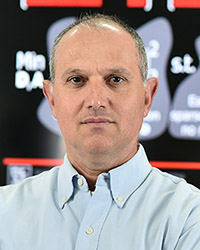
Abstract: Sparse approximation is a well-established theory, with a profound impact on the fields of signal and image processing. In this talk we start by presenting this model and its features, and then turn to describe two special cases of it - the convolutional sparse coding (CSC) and its multi-layered version (ML-CSC). Amazingly, as we will carefully show, ML-CSC provides a solid theoretical foundation to … deep-learning. Alongside this main message of bringing a theoretical backbone to deep-learning, another central message that will accompany us throughout the talk: Generative models for describing data sources enable a systematic way to design algorithms, while also providing a complete mechanism for a theoretical analysis of these algorithms' performance. This talk is meant for newcomers to this field - no prior knowledge on sparse approximation is assumed.
Bio: Michael Elad holds a B.Sc. (1986), M.Sc. (1988) and D.Sc. (1997) in Electrical engineering from the Technion, Israel Institute of Technology. After several years in industrial research, Michael served as a research associate at Stanford University during 2001-2003, working closely with Prof. Gene Golub (CS), Prof. Peyman Milanfar (EE-UCSC), and Prof. David L. Donoho (Statistics). Since 2003 he holds a permanent faculty position in the Computer Science Department at the Technion. Michael works in the field of signal and image processing, specializing in particular on inverse problems and sparse representations. He has authored hundreds of technical publications in leading venues, many of which have led to exceptional impact. He is the author of the 2010's book "Sparse and Redundant Representations: From Theory to Applications in Signal and Image Processing", which is a leading publication in this field. He has served as an Associate Editor for IEEE-TIP (2007-2011), IEEE-TIT (2011-2014), ACHA (2012-2015), and SIAM Imaging Sciences - SIIMS (2010-2015). He held a senior editorial role for IEEE-SPL (2012-2014), and since January 2016, he is serving as the Editor-in-Chief for SIIMS. Michael received numerous teaching and research awards and grants. He was awarded an ERC advanced grant in 2013. He is the recipient of the 2008 and 2015 Henri Taub Prizes for academic excellence, the 2010 Hershel-Rich prize for innovation, and the 2017 Yanai prize for excellence in academic teaching. Michael is an IEEE Fellow since 2012.
Solving Large Linear Systems with a Double Stochastic Gauss-Seidel Algorithm - Zhiquan Luo, University of Minnesota
Tuesday, 10 July 2018, 9:00 - 10:00 (Diamond Lecture Theatre 4)
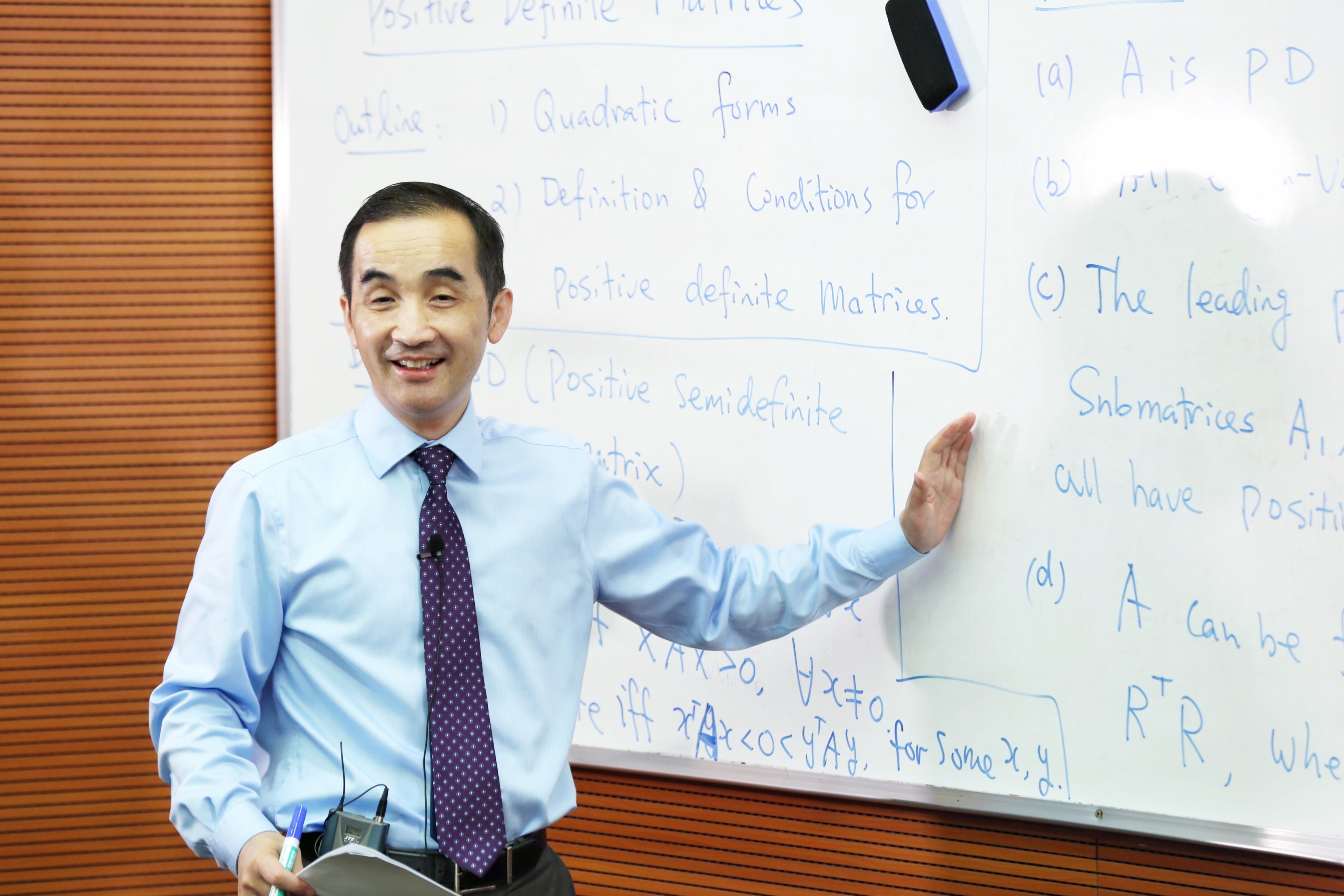
Abstract: In this talk, we propose a double stochastic Gauss-Seidel (G-S) type algorithm for solving a linear system of equations Ax=b. Although it is generally known that the G-S scheme and many of its variants diverge when A is neither diagonal dominant nor symmetric positive definite, we show a positive result: with a random choice of equations and variables, the (over relaxed) G-S algorithm converges globally linearly (in expectation) for any feasible linear systems of equations. The key in the algorithm design is to introduce a nonuniform and double randomization rule for picking the equations and the variables in each update step. Our analysis also generalizes to certain iterative alternating projection algorithms for solving the linear inequality system Ax‹b with an arbitrary A. Our result demonstrates that properly introducing randomization can ensure global linear convergence of an (otherwise divergent) G-S type algorithm for arbitrary A. This is a joint work with Mingyi Hong, Meisam Razaviyayn, Navid Reyhanian.
Bio: ZHI-QUAN TOM LUO (F) received his B.Sc, Applied Mathematics, from Peking University in 1984 and PhD in Operations Research from MIT in 1989. He was with the McMaster University, Canada, from 1989 to 2003, where he served as the Head of the ECE Department and held a Canada Research Chair in Information Processing. He has been with the ECE Department at the University of Minnesota (Twin Cities), since 2003-present (on leave). He is Vice President (Academic) and Professor of School of Science and Engineering, the Chinese University of Hong Kong (Shenzhen) (2014-present). He is also concurrently serving as the founding director of the Shenzhen Research Institute of Big Data. His research interests lie in optimization algorithms for signal processing, data analytics and digital communication. Dr. Luo is a recipient of the 2004, 2009 and 2011 IEEE SPS Best Paper Award, the 2015 IEEE SPS Best Magazine Paper Award, the 2011 EURASIP Best Paper Award and the 2011 ICC Best Paper Award. He was awarded the 2010 Farkas Prize from the INFORMS Optimization Society. Prof. Luo is a Fellow of IEEE and SIAM. His professional activities include: Editor-in-Chief, IEEE Transactions on Signal Processing (2012-2014); Editorial Board Member, IEEE Signal Processing Magazine (2009-2012) and IEEE Journal of Selected Topics of Signal Processing (2013-Present); Associate Editor, Mathematics of Operations Research, INFORMS, (2007-Present) and Management Sciences (2009-Present); Member/Vice Chair/Chair/Past Chair, SPS Signal Processing for Communications and Networking Technical Committee (2005-2013) and Member, SPS Publications Board (2012-present); Associate Editor, IEEE Transactions on Signal Processing (2000-2004) and SIAM Journal on Optimization (1998-2005); Member, SPS Signal Processing Theory and Methods Technical Committee (2006-2009); Member, SPS Technical Directions Board (2010-2012); 2004 ICASSP tutorial lecturer, 2009 ICASSP area overview speaker; Plenary speaker, 2013 IEEE SPAWC Workshop and 2014 IEEE Comm. Theory Workshop; Semi-plenary speaker, 2011 IEEE Conference on Decision and Control. He is elected to the Royal Society of Canada (highest distinction for a Canadian scientist) for influential contributions to optimization algorithms and their applications in signal processing, communications. He also received the 2010 Farkas Prize from the INFORMS Optimization Society for outstanding contributions to the field of optimization. He is elected to SIAM Fellow in 2011 for the development of novel applied mathematics ideas and methods for signal processing and digital communication.
Radio Astronomy Image Formation in the SKA Era - Alle-Jan van der Veen, TU Delft, The Netherlands
Wednesday, 11 July, 2018, 9:00 - 10:00 (Diamond Lecture Theatre 4)
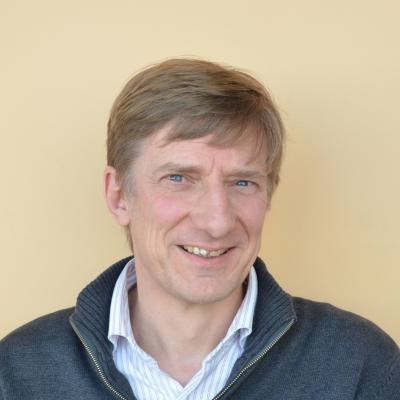
Abstract: The Square Kilometre Array (SKA) is a new generation radio telescope, planned to be operational in 2025. SKA will consist of massive numbers dish antennas as well as antenna arrays. One of the key science drivers is the discovery of the faint ‘21-cm signal' from neutral hydrogen in the infant Universe. Characterising it would provide insight on the early Universe and the formation of the first stars, galaxies, black holes and intergalactic gas. However, detection of the 21-cm signal is extremely difficult because it is masked by emissions from much brighter radioemitting sources (e.g. the Milky Way), up to a million times stronger than the 21-cm signal. Moreover, the received data is corrupted by the time-varying ionosphere, the radio receivers, and man-made interference signals, while also the required exabyte data volumes provide enormous challenges. Thus, significant signal processing efforts are required in the areas of calibration, image formation, and interference detection/cancellation, while the high-performance algorithms should be "simple" and efficient to implement on parallel or distributed compute platforms. The talk will discuss the general design of SKA, highlight the computational challenges, and present in more detail the image formation problem, a large-scale inverse problem that is inherently ill-posed. Among various possible regularizations that encourage sparsity of the solution, we present one promising new approach related to Sparse Bayesian Learning.
Bio: Alle-Jan van der Veen is a Full Professor in Signal Processing at TU Delft, The Netherlands, and Fellow of the IEEE and of EURASIP. He was chairman of the IEEE SPS Signal Processing for Communications Technical Committee, Editor-in-Chief of IEEE Signal Processing Letters, Editor-in-Chief of IEEE Transactions on Signal Processing, and Chairman of the IEEE SPS Fellow Reference Committee. At present, he is chairman of the IEEE SPS Signal Processing Methods and Techniques Technical Committee, chairman of the IEEE Kilby Medal selection committee, and Director of Publications of EURASIP. His research interests are in the general area of system theory applied to signal processing, and in particular algebraic methods for array signal processing, with applications to wireless communications and radio astronomy.
Commercial MIMO Radar Successes and Challenges - Jian Li, University of Florida, USA
Wednesday, 11 July, 2018, 13:20 - 14:20 (Diamond Lecture Theatre 4)
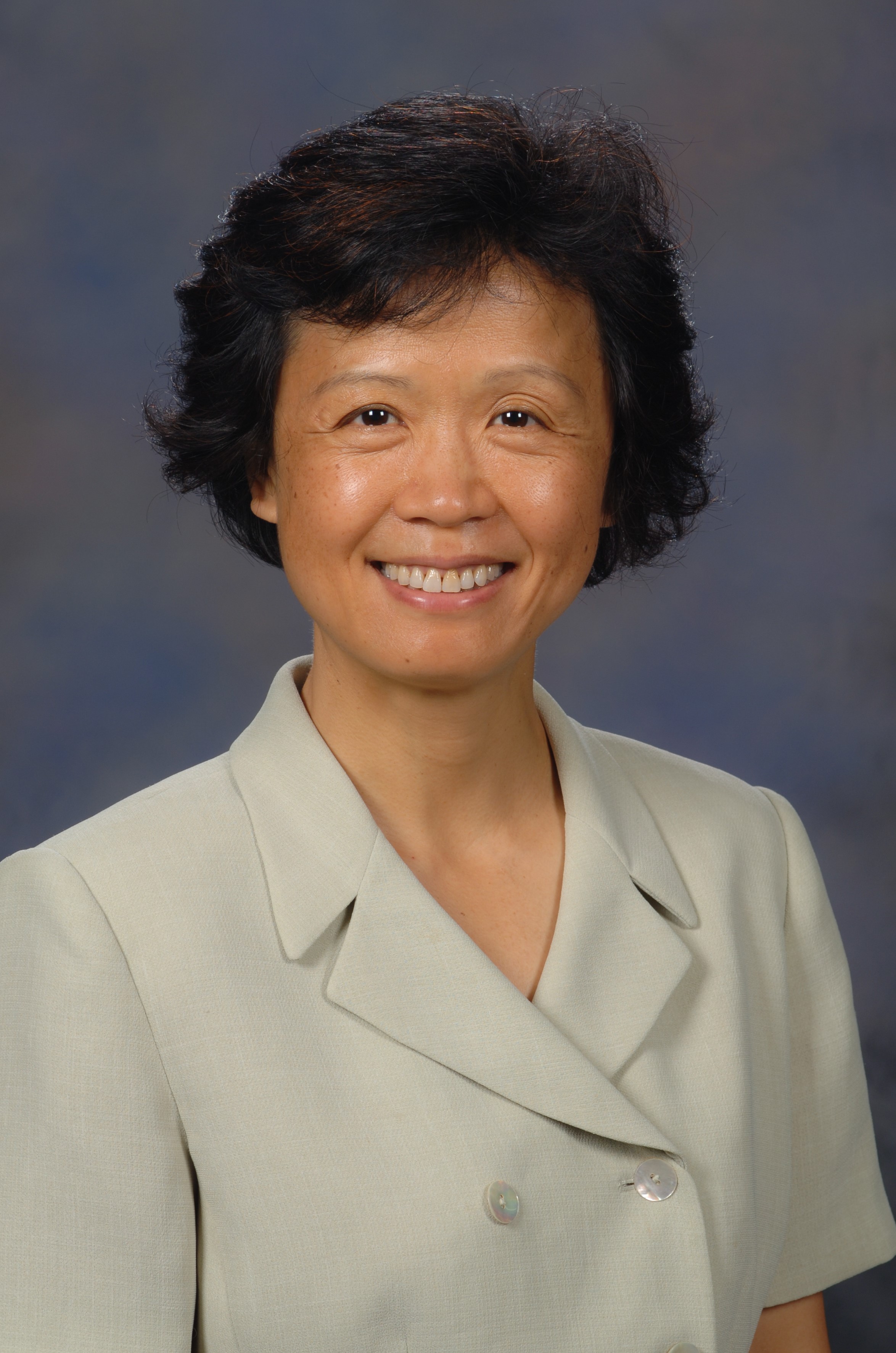
Abstract: Unlike a standard phased-array radar, MIMO radar can transmit via its antennas multiple probing signals that may be correlated or uncorrelated with each other. We provide herein an overview of some recent results on MIMO radar with colocated antennas, showing that this waveform diversity enables the MIMO radar superiority in several fundamental aspects. Moreover, we discuss several commercial MIMO radar developments, including the highly successful automotive MIMO radar developments. Driven by autonomous driving demands, the automotive radar industry is already a multi-billion-dollar industry! Furthermore, to deal with mutual interference mitigation challenges encountered in commercial MIMO radar systems, probing waveform synthesis for MIMO radar is also discussed. We will provide a review of novel, cyclic approaches to single and multiple probing waveform designs. Both aperiodic and periodic correlations will be considered. We show that by making use of fast Fourier transforms (FFTs), we can now efficiently design sequences that were previously impossible to synthesize. We will also briefly present recent developments on slow-time code designs to achieve low-cost mutual interference mitigations.
Bio: Jian Li received the M.Sc. and Ph.D. degrees in electrical engineering from The Ohio State University, Columbus, in 1987 and 1991, respectively. She is currently a Professor in the Department of Electrical and Computer Engineering, University of Florida, Gainesville. Her current research interests include spectral estimation, statistical and array signal processing, and their applications to radar, sonar, and biomedical engineering. Dr. Li's publications include Robust Adaptive Beamforming (2005, Wiley), Spectral Analysis: the Missing Data Case (2005, Morgan & Claypool), MIMO Radar Signal Processing (2009, Wiley), and Waveform Design for Active Sensing Systems — A computational approach (2011, Cambridge University Press). Dr. Li is a Fellow of IEEE and a Fellow of IET. She is also a Fellow of the European Academy of Sciences (Brussels). She received the 1994 National Science Foundation Young Investigator Award and the 1996 Office of Naval Research Young Investigator Award. She was an Executive Committee Member of the 2002 International Conference on Acoustics, Speech, and Signal Processing, Orlando, Florida, May 2002. She was an Associate Editor of the IEEE Transactions on Signal Processing from 1999 to 2005, an Associate Editor of the IEEE Signal Processing Magazine from 2003 to 2005, and a member of the Editorial Board of Signal Processing, a publication of the European Association for Signal Processing (EURASIP), from 2005 to 2007. She was a member of the Editorial Board of the IEEE Signal Processing Magazine from 2010 to 2012. She is currently a member of the Sensor Array and Multichannel Technical Committee of the IEEE Signal Processing Society. She is a co-author of the paper that has received the M. Barry Carlton Award for the best paper published in IEEE Transactions on Aerospace and Electronic Systems in 2005. She is also a co-author of a paper published in IEEE Transactions on Signal processing that has received the Best Paper Award in 2013 from the IEEE Signal Processing Society.
